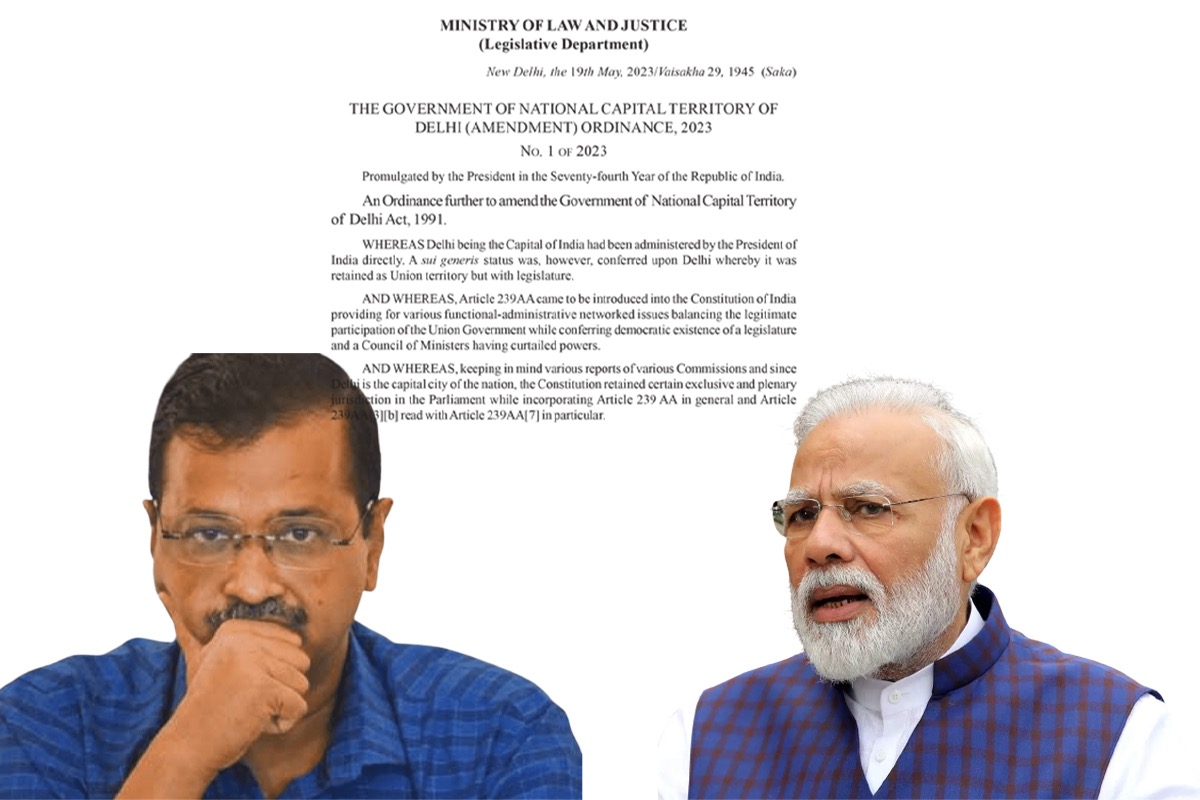In a dramatic move, the Centre promulgated an ordinance late night on Friday to overturn a recent Supreme Court order granting control of officers dealing with subjects other than public order, police, and land to the Delhi government. The ordinance also assigned the lieutenant governor the superintending jurisdiction over the entire officer cadre in the National Capital Territory.
It further explains that regardless of any existing law, the National Capital Civil Service Authority will be responsible for recommending transfers and postings of all Group ‘A’ officers and officers of DANICS (Delhi, Andaman and Nicobar Islands Civil Service) who serve in the affairs of the government of the National Capital Territory of Delhi, except for officers serving in relation to any specific subject matter.
“Notwithstanding anything contained in any law for the time being in force, the National Capital Civil Service Authority shall have the responsibility to recommend transfers and postings of all Group ‘A’ officers and officers of DANICS serving in the affairs of the Government of National Capital Territory of Delhi, except for officers serving in connection with any subject matter fully or partially related to Entries 1, 2, and 18 of List II-State List of the Seventh Schedule to the Constitution, and Entries 64, 65, and 66 of List II-State List of the Seventh Schedule to the Constitution, insofar as they pertain to Entries 1, 2, and 18, or any other subject matter connected or incidental to them, to the Lieutenant Governor,” reads the ordinance.
“The National Capital Civil Service Authority shall also have the responsibility to recommend matters related to vigilance and non-vigilance for disciplinary proceedings and prosecution sanctions against all Group ‘A’ officers, including officers of the All India Services and DANICS, serving in the affairs of the Government of National Capital Territory of Delhi, except for officers serving in connection with any subject matter fully or partially related to Entries 1, 2, and 18 of List II-State List of the Seventh Schedule to the Constitution, and Entries 64, 65, and 66 of List II-State List of the Seventh Schedule to the Constitution, insofar as they pertain to Entries 1, 2, and 18, or any other subject matter connected or incidental to them,” it further reads
According to the order, the decision of the Lieutenant Governor will have final authority in case of a difference of opinion.
The newly introduced ordinance establishes the National Capital Civil Service Authority, which will be responsible for exercising conferred powers and fulfilling assigned functions.
The authority will consist of the Chief Minister of the government of the National Capital Territory of Delhi as the Chairperson, the chief secretary, and the Principal Home Secretary, who will serve as the member secretary.
All decisions required to be made by the authority will be determined by a majority vote of the present and voting members. The member secretary will authenticate all recommendations put forth by the authority, the ordinance states.
As per the ordinance, the National Capital Civil Service Authority will convene its meetings at a time and place determined by the member secretary, with the approval of the authority’s chairperson, as and when necessary.
“The central government, in consultation with the authority, will define the types and categories of officers and other employees required to assist the authority in carrying out its functions, and will provide the authority with suitable officers and employees,” the ordinance states.
The Supreme Court affirmed on May 11 that the Union and Delhi government must respect the division of administrative powers. It declared that the Delhi government possesses legislative and executive authority over services in the national capital, including bureaucrats, with the exception of matters concerning public order, police, and land. The five-judge Constitution bench, comprised of Chief Justice of India DY Chandrachud and Justices MR Shah, Justice Krishna Murari, Hima Kohli, and PS Narasimha, emphasized the importance of upholding this division of powers.

